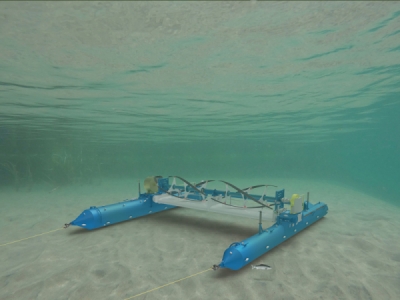
Posted on September 28, 2020
After years of development, tidal and river energy supporters say the technology is on the cusp of wider commercial deployment, especially if it can win federal support.
With much of New England’s attention on offshore wind, a Maine company hopes to put itself on the map with tidal energy.
Portland, Maine-based Ocean Renewable Power Company recently signed a memorandum of understanding with the city of Eastport on a five-year plan to develop a $10 million microgrid primarily powered by tidal generation.
The project will be an opportunity for the small port city to expand its workforce and build its appeal for younger residents. It’s also an opportunity for ORPC to expand its reach as the company’s leaders try to find a viable market for ocean- and river-based generation in an industry largely dominated by solar and wind.
ORPC has been working to develop marine electricity generation technology since 2004 and has since expanded its offices internationally, including to Montreal and Dublin and soon in Chile. The company’s river-based generation technology is currently providing power to a remote Alaska community.
While tidal and river energy haven’t reached the same level of visibility as other renewable sources, supporters say these and related resources like wave and ocean current energy — collectively called marine and hydrokinetic resources — are at a similar point now to where solar and wind were a decade ago. They say the predictability of tides and currents in places like the Western Passage, the inlet on which Eastport is located, makes these resources promising as governments aim to create a resilient grid.
“We’re entering a new phase,” said John Ferland, ORPC’s president, “a decade where there’s more renewables coming online, there’s greater policy support for all kinds of renewables.” ORPC has developed underwater systems that use turbines positioned parallel to the ocean floor and perpendicular to the current to generate electricity. They’re submerged at depths that allow boats to pass above.
Source: coastalnewstoday





